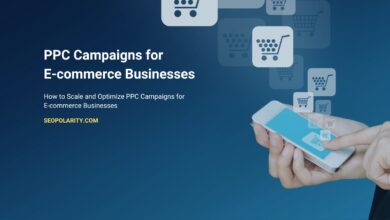
As the world of ecommerce continues to grow, so does the importance of ecommerce PPC. Paid search advertising is a powerful way to reach potential customers who are actively searching for products and services like yours. By targeting relevant keywords and crafting compelling ads, you can drive highly qualified traffic to your website and increase conversions.
Ecommerce PPC can be an extremely effective way to grow your business. When done correctly, it can help you reach your target audience, increase brand awareness, and boost sales. If you’re not sure where to start, consider working with a PPC agency that specializes in ecommerce. They can help you create a campaign that delivers results.
What is a Conversion?
In online advertising, a “conversion” is the desired action that is completed by a user after clicking on an ad. This could be anything from making a purchase, to signing up for a newsletter, to downloading a white paper. Essentially, a “conversion” is any time that someone takes the action that you want them to take as the result of your ad.
There are two main types of conversions: micro and macro. Micro conversions are smaller actions that may not directly lead to a sale, but can still be valuable. For example, if someone clicks on an ad and then signs up for a newsletter, that would be considered a micro conversion. Macro conversions are the bigger ones—the ones that you really want people to take. These are usually things like making a purchase or booking an appointment.
What is ROI?
In business, ROI stands for return on investment. This metric is used to measure the profitability of an investment by comparing the amount of money earned from it to the amount of money spent on it. For example, if you spend $100 on ecommerce pay-per-click (PPC) advertising and earn $200 in sales from that advertising, your ROI would be 100%.
There are a number of ways to calculate ROI, but the most important thing to remember is that it represents the relationship between what you put in and what you get out. In other words, it shows how much profit you’re making relative to your costs.
For ecommerce businesses, calculating ROI is essential for understanding which marketing channels are most effective and where to allocate resources for maximum profitability.
Why You Should Optimize for Conversions and ROI
As an ecommerce business, it is important to focus on conversions and ROI in order to be successful. By optimizing for conversions, you are more likely to see a return on your investment, which is essential for any business. Here are a few reasons why you should optimize for conversions and ROI:
- You want to see a return on your investment.
- Optimizing for conversions will help you increase sales.
- It is important to focus on both conversion rate and ROI when running an ecommerce business.
- By optimizing for conversions, you are more likely to bring in new customers.
- Increasing your conversion rate can have a direct impact on your bottom line.
- Optimizing for ROI will help you make better use of your marketing budget.
How To Optimize For Conversions And ROI
As an ecommerce business, you’re always looking for ways to optimize your website for conversions and ROI. Here are some tips on how to do just that:
- Make sure your website is mobile-friendly. More and more people are shopping on their smartphones, so if your site isn’t optimized for mobile, you’re likely losing out on a lot of potential business.
- Use relevant keywords in your PPC campaigns. Targeting the right keywords will help ensure that your ads are being seen by people who are actually interested in what you’re selling.
- A/B test your landing pages. This will help you determine which version of your page is more effective at converting visitors into customers.
By following these tips, you can help increase conversions and ROI for your ecommerce business.
Conclusion
Ecommerce PPC can be a great way to boost conversions and ROI. However, it’s important to optimize your campaigns for the best results. By following the tips in this article, you can ensure that your campaigns are as effective as possible.





One Comment